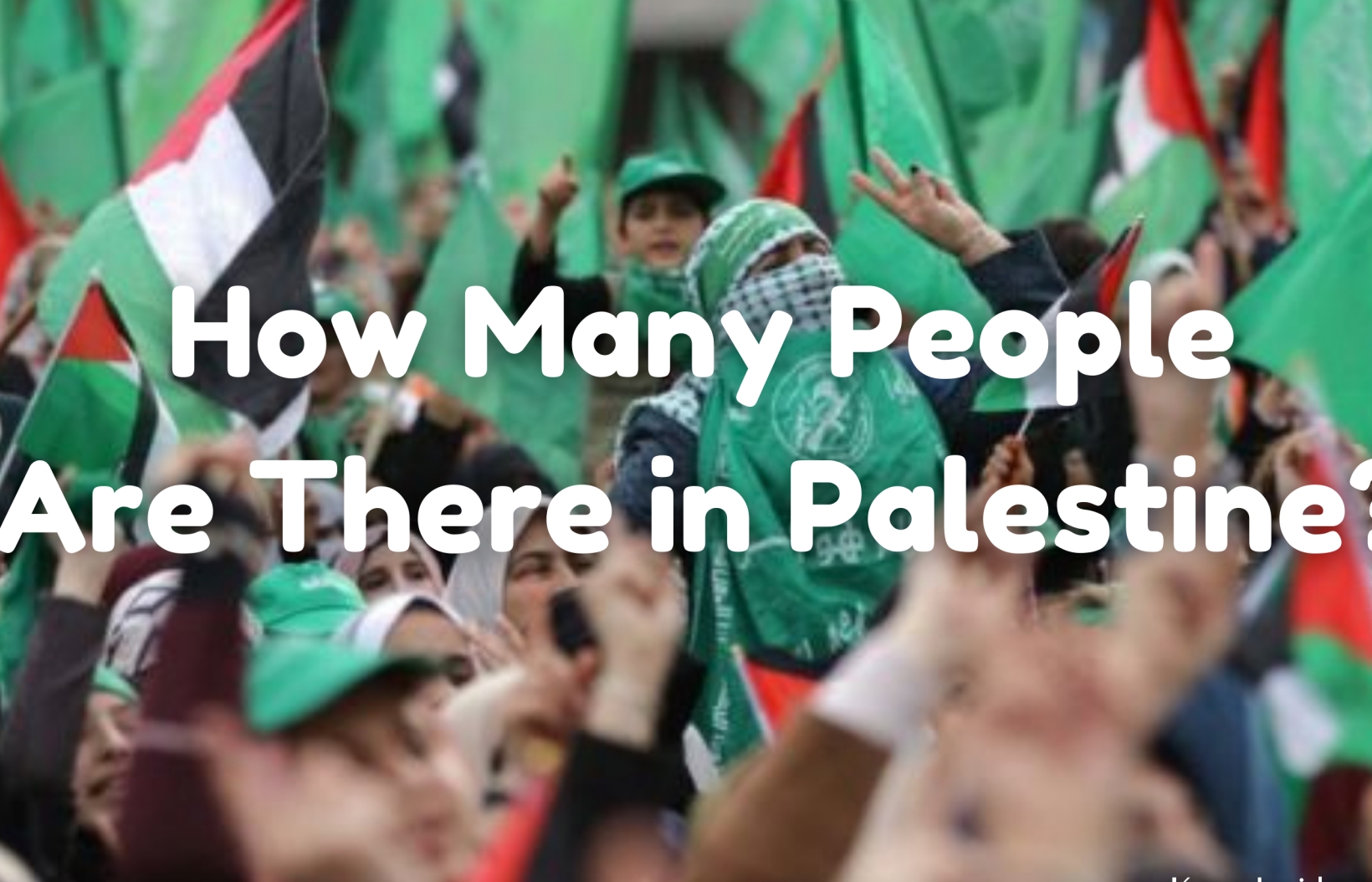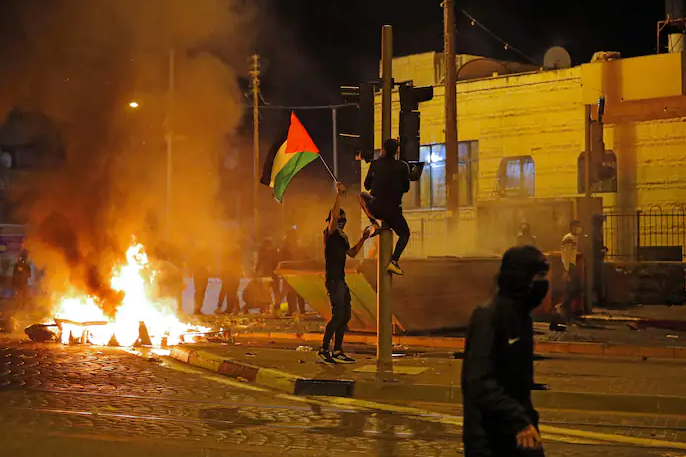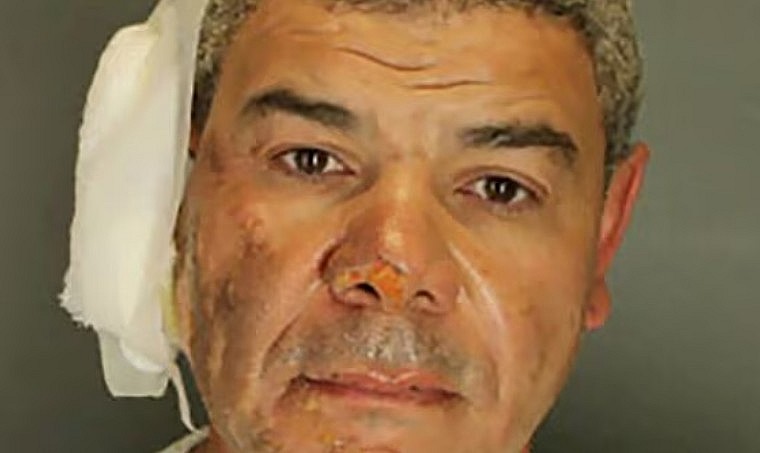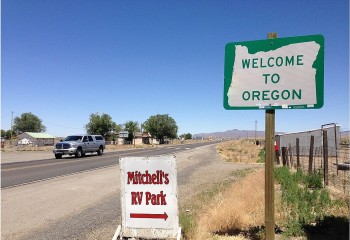Who Is Mohamed Sabry Soliman? Inside the Life of the Man Behind Boulder’s Antisemitic Terror Attack
 How Many People Are There in Palestine - Updated Population How Many People Are There in Palestine - Updated Population |
 Israel - Palestine Conflict: History, Timeline, Causes and More Israel - Palestine Conflict: History, Timeline, Causes and More |
A Violent Outburst in the Heart of Boulder
On June 1, 2025, a sunny Saturday afternoon in downtown Boulder, Colorado, turned catastrophic. A peaceful pro-Israel demonstration, part of the global "Run for Their Lives" movement advocating for Israeli hostages held by Hamas, was abruptly transformed into a horror scene.
At around 3:00 PM, Mohamed Sabry Soliman, 45, armed with two lit Molotov cocktails and a makeshift flamethrower built from a garden sprayer filled with gasoline, attacked the crowd. Disguised as a landscaper, he infiltrated the event under the pretense of routine maintenance, then unleashed fire and chaos.
Witnesses say he shouted "Free Palestine" as he ignited his devices. Within seconds, flames engulfed parts of the crowd. Twelve people were injured—several seriously—including an 88-year-old Holocaust survivor. Passersby and participants scrambled to put out the flames with jackets and water bottles.
 |
| Boulder attack suspect Mohamed Sabry Soliman charged with first-degree murder, assault, and use of explosives |
Who Is Mohamed Sabry Soliman?
Mohamed Sabry Soliman is an Egyptian national who arrived in the United States in August 2022 on a B-2 tourist visa. In September 2022, he filed for asylum, citing fears of persecution. He was issued a work permit, which expired in March 2025. By the time of the attack, Soliman had overstayed his visa and was living in the U.S. unlawfully.
He settled in Colorado Springs with his wife and five children. His wife, a homemaker, reportedly supported his asylum claim but rarely appeared in public life. The couple’s children, ranging in age from 6 to 17, were enrolled in local schools and were said to be doing well academically. The family lived in a modest two-bedroom apartment in a suburban complex where rent was subsidized through local assistance programs.
Neighbors described Soliman as quiet and reserved. Some noted he kept to himself but was always polite in passing. He was occasionally seen walking his youngest son to school or tending to the small garden patch outside their building.
Professionally, Soliman worked part-time as an Uber and food delivery driver, although his income fluctuated. Records show he also attempted to start a lawn care business but failed to secure clients. According to one former acquaintance, Soliman had recently become withdrawn, often expressing frustration about his immigration status and financial situation.
Investigators later discovered that Soliman had become increasingly involved in online forums that pushed extremist views. Digital evidence showed a steady consumption of antisemitic content, conspiracy theories, and radical propaganda.
He had reportedly built and tested incendiary devices in remote areas outside Colorado Springs months before the attack. Despite his relatively low public profile, Soliman had meticulously planned the assault, delaying it strategically to avoid disrupting his daughter’s high school graduation ceremony.
His statements during interrogation were chilling: "I want to kill all Zionists. I wish they were all dead. I'd do it again."
 |
| Mohamed Sabry Soliman, the suspect in the Colorado attack |
The Attack: Execution and Aftermath
Soliman's tactical approach was deeply premeditated. He carried 16 additional Molotov cocktails in a duffel bag and used a pressurized sprayer to project gasoline onto his victims. After throwing the first devices, he began spraying fire into the crowd, aiming for the densest areas.
Bystanders, including off-duty EMTs and security volunteers, rushed to extinguish victims’ clothing and provide aid. Police arrived quickly and subdued Soliman without resistance. He was arrested at the scene and transferred to Boulder County Jail.
Emergency crews transported six people to area hospitals. Two remain in critical condition, while others suffered burns ranging from second to third degree. The identity of the Holocaust survivor has not been released for privacy reasons, but they are said to be recovering.
Federal and State Charges
Soliman now faces a lengthy list of federal and state charges:
-
One federal count of a hate crime resulting in bodily injury
-
16 counts of attempted first-degree murder
-
Two counts of use of an incendiary device
-
16 counts of attempted use of an incendiary device
He is being held on a $10 million bond. If convicted on all charges, Soliman faces multiple life sentences in federal prison and over 600 years in state prison.
The FBI and Department of Homeland Security have classified the act as domestic terrorism motivated by antisemitic hatred. Prosecutors have indicated they may seek enhanced sentencing guidelines due to the ideological nature of the crime.
Community and Political Reactions
The attack sent shockwaves through Colorado and the nation. Vigils were held at synagogues across Boulder, Denver, and nationwide. Jewish organizations condemned the attack, calling for renewed action against hate speech and domestic extremism.
Colorado Governor Jared Polis said, "This was a heinous attack—not just on Jews, but on the values of tolerance and freedom. We must never accept hate as normal."
Former President Donald Trump used the incident to criticize current immigration policies, stating, "We must protect our people from those who come to our country with hate in their hearts."
Israeli Prime Minister Benjamin Netanyahu issued a statement expressing horror and gratitude to U.S. authorities for their swift action. "Terrorism must be condemned, whether in Tel Aviv or Colorado."
A Broader Pattern of Hate
The Boulder attack reflects a broader, disturbing pattern. According to the FBI, antisemitic incidents surged 36% in 2024. Experts link this to online radicalization, geopolitical polarization, and growing domestic extremism.
Dr. Miriam Goldstein, a terrorism researcher at Georgetown University, noted: "We are entering a period where ideology, fueled by online echo chambers, is motivating individuals to act violently at home."
This attack was not spontaneous—it was nurtured over time. Authorities found that Soliman had downloaded blueprints for incendiary devices and frequented extremist forums espousing anti-Zionist rhetoric.
Frequently Asked Questions (FAQs)
Who is Mohamed Sabry Soliman?
Soliman is a 45-year-old Egyptian national, father of five, and former Uber driver. He was living illegally in the U.S. after overstaying a tourist visa.
Why did he attack the rally?
Soliman told investigators he hated Zionists and wanted to kill as many as possible. He viewed the pro-Israel event as a symbolic target.
What weapons did he use?
He used two Molotov cocktails and a homemade flamethrower made from a garden sprayer filled with gasoline.
Who were the victims?
Twelve individuals were injured, including two in critical condition and an elderly Holocaust survivor.
What charges is he facing?
Federal hate crime, 16 counts of attempted murder, and multiple charges related to the use of incendiary weapons.
What’s the next legal step?
Soliman’s next court appearance is scheduled for June 5, 2025. The case is expected to draw national attention.
Conclusion
The Boulder attack was not just an isolated incident—it was a flashpoint in America’s ongoing struggle with hate-fueled violence. It showed how ideological extremism, left unchecked, can erupt into brutality in the heart of a peaceful community.
As the legal process moves forward, the victims and the city of Boulder begin the long path to recovery. Meanwhile, the nation faces hard questions: Are we doing enough to detect and prevent domestic terrorism? And how can we foster unity in a time of polarization?
Justice may be on the horizon. But healing—and prevention—require more than prosecutions. They demand vigilance, compassion, and a commitment to confronting hate wherever it festers.























